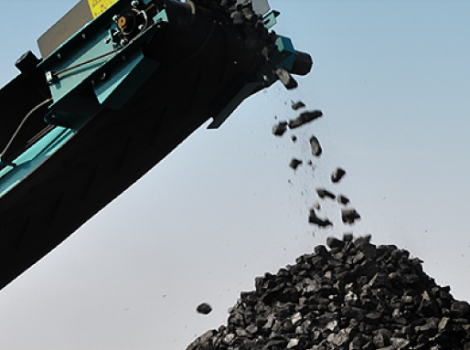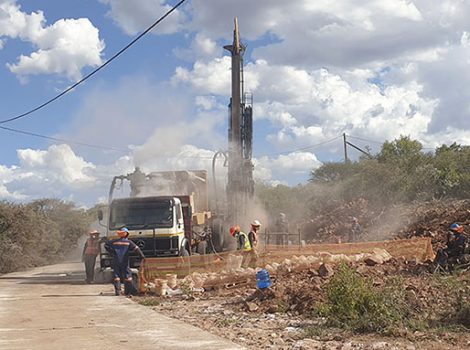
Tlou Energy Limited says it is progressing well with drilling operations aimed at exposing underground resources, placing the company in a good position to become the first of its kind in Southern Africa. Tlou is a Botswana Stock Exchange-listed company focused on delivering power in Botswana and Southern Africa through the exploration and development of coal bed methane (CBM) natural gas.
In its 2019 third quarter operations report released this week, Tlou reported that its Lesedi 3 and 4 projects achieved initial sustained gas flows of approximately 20 thousand standard cubic feet per day (Mcfd) from each pod. Gas flow rates are anticipated to increase steadily as the coals become gas saturated. The report states that drilling has commenced in the Mamba project area with the objective of providing valuable data required for the expansion of the Company’s gas Reserves and Contingent Resources.
According to Tlou Directors, during the quarter, the Company’s operations made excellent progress with the Lesedi gas production pods having achieved sustained gas production rates. Following completion of the first phase of production testing, including initial dewatering, reaching critical gas desorption point and commencing gas production, the pods commenced producing sustained gas flows.
Company Directors say the initial rates of approximately 20 thousand standard cubic feet per day (Mcfd) from each pod are a good start.
“This was an excellent start and we are very encouraged by production data to date. Gas production is continuing and, as with most new CBM developments, the rate is anticipated to continue increasing following further reduction of pressure in the coal and additional dewatering, with the aim to reach a peak and commercial gas flow rate as soon as possible.”
The current stage of production involves maintaining pressure on the reservoir to further reduce water production, so that the lateral wells become gas saturated, rather than water-saturated. This is followed by reducing pressure in the wells to the desired level which, once achieved, is usually expected to significantly increase the gas flows from the wells.
“This is a methodological and detailed process, it takes time to achieve, we will update the market on further progress in due course,” said Tlou Directors.
The company further says with the CBM project not yet established in the Southern African Region, Tlou could pioneer CBM development in the area.
“Successful results from this project could potentially facilitate the opening up of a whole new CBM basin in Botswana and be a significant boost not only for Tlou, but for the whole region, with the potential for Tlou to supply power within Botswana and also into neighbouring countries via the Southern African Power Pool (SAPP)”
In 2018 the Company submitted a tender to Botswana’s Ministry of Minerals Resources, Green Technology and Energy Security for the Development of a CBM-fuelled power plant in Botswana and was subsequently selected as the preferred bidder for this proposal.
If successful, the negotiations will result in Tlou agreeing a Power Purchase Agreement (PPA) with the Government of Botswana. This would mean the Botswana Power Corporation (BPC), the national electricity utility in Botswana, would purchase the power produced by Tlou at the Lesedi project for distribution into its national grid supply.
“The tender negotiations are confidential and are being led by the government of Botswana. The government has confirmed its commitment to the development of CBM-fuelled pilot power plants and is in the process of sourcing an advisor to assist them in tender negotiations,” shared company directors.
Since establishment, Tlou Energy has significantly de-risked its project in consideration of its goal to become a significant gas-to-power producer.
The Company flared its first gas in 2014 and has a 100% interest over its Mining Licence and ten Prospecting Licences covering an area of ~9,300 Km2 in total. The Lesedi and Mamba Projects already benefit from significant independently certified 2P gas Reserves of ~41 BCF. In addition, 3P gas Reserves of ~427 BCF and Contingent Gas Resources of ~3,043 BCF provide significant additional potential.
Source: weekendpost.co.bw



